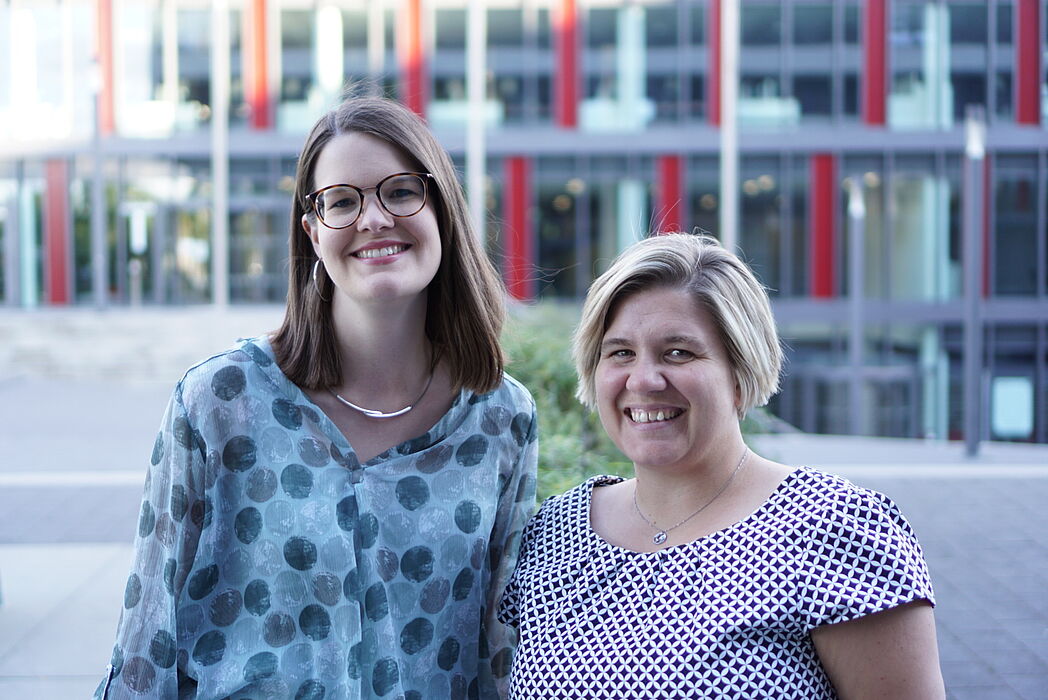Strategic lying can help actors in some matching procedures to achieve their desired result. The two economists Dr. Britta Hoyer and Dr. Nadja Stroh-Maraun examined to what extent Paderborn students use this strategy in the clearinghouse of the Faculty of Business Administration and Economics that matches students that want to write their theses to supervisors. Their investigation shows that students are aware of the incentives of this strategy. For their work, Hoyer and Stroh-Maraun have now received the Faculty's “Dean’s Young Scholar Research Award”.
In the current allocation procedure at the faculty, students submit preferences for their theses, which are then distributed to the available professorships in a centrally controlled process. In contrast to other known matching mechanisms, this method is not "strategy-proof". This means that students receive incentives to behave strategically and to lie to improve their own results, i.e. to be assigned to a preferred professorship. For their research, which was published as a research contribution in the international journal “Games and Economic Behavior” in May, Hoyer and Stroh-Maraun used data from the allocation procedure at the faculty as well as from a survey conducted among participating students. They empirically examined the data by considering two aspects: On the one hand, they investigated whether students recognize and use the strategic incentives. On the other hand, the students do not have complete information. Hence, strategic behavior does not always have to lead to the desired result.
In their study, Hoyer and Stroh-Maraun showed that students recognize the incentives and try to react to them. Almost three quarters of the students stated wrong preferences. Nevertheless, they often failed to improve their outcomes. The authors state: “This is partly due to incomplete information, but also due to the so-called naivety of the students. Naive students - in contrast to sophisticated students - do not act consistently with the information given. Thus, they do not manage to state the 'right' false preferences or the true preferences if this is the best strategy according to the information given. Instead, sophisticated students take advantage of this naivety to improve their own results. The results are clear and robust across different test methods and data sets from different semesters.”
Prof. Dr. Hendrik Schmitz, Vice Dean, about the study: “Previous research dealing with the observed behavior of actors in matching markets is rare, and the few that exist so far have neglected mechanisms that are not strategy-proof. The identification of naive behavior based on consistency and the fact that an actor indicates false preferences is a new aspect that has not been investigated in the literature so far. With their analysis, the two researchers add a strong argument, for the use of mechanisms that offer no incentive to lie, to the scientific discussion.” In addition to that, Schmitz emphasizes the importance of the study shown in its publication in the professional journal: “The renowned journal “Games and Economic Behavior” is the leading journal in the field of game theory. In the field of theoretical microeconomics, the journal is considered as one of the best and can regularly be found among the top places in well-known economic rankings. Many established professors in Germany who work in this area have no or one publication in this journal. It is therefore an extraordinary achievement that the two authors succeeded in producing this publication in such young academic years. It should also be emphasized that this is a collaboration across different chairs which the two authors carried out completely independent. The publication also contributes significantly to the national and international visibility of our faculty in top research on game theory.”
The results of the study will also be used within the faculty, as Dean Prof. Dr. Caren Sureth-Sloane emphasizes: “The findings of the study by Britta Hoyer and Nadja Stroh-Maraun are of particular interest to our faculty, as the authors use data from the clearinghouse at our faculty as the basis for their analysis. The results are therefore not only of great interest from a scientific point of view, but also provide implications for the future design of our process.”
Their research work entitled "Matching Strategies of Heterogeneous Agents under Incomplete Information in a University Clearinghouse" can be found in the journal at the following link: https://doi.org/10.1016/j.geb.2020.03.006


